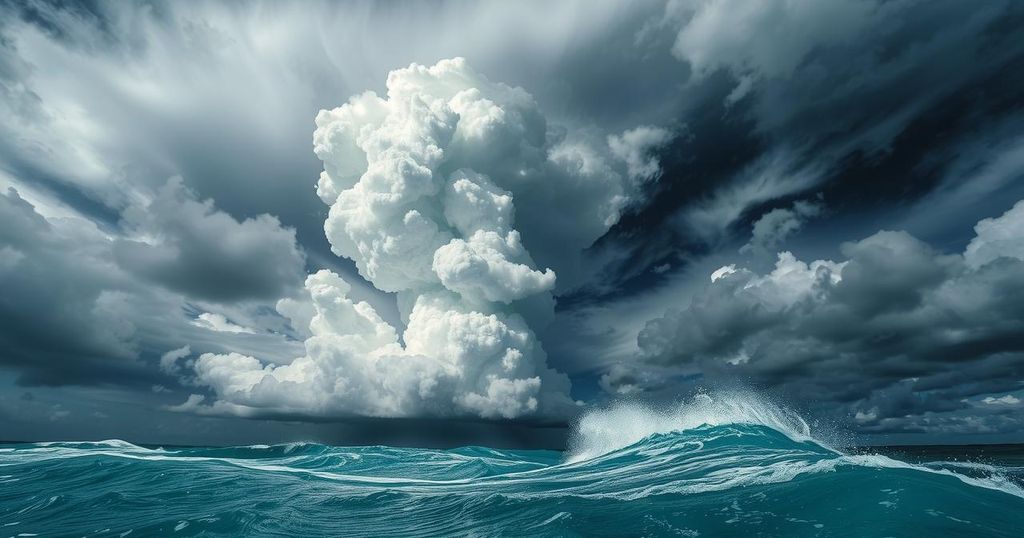Cyclone Chido has severely hit Mayotte, marking the strongest storm in 90 years with a death toll of at least 22 and widespread destruction. Climate change exacerbates the intensity of such storms, as evidenced by rising ocean temperatures and insufficient weather forecasting capabilities in Africa. Efforts are underway to establish better early warning systems to protect vulnerable populations from future cyclones.
The Indian Ocean territory of Mayotte is grappling with the devastating impacts of Cyclone Chido, the most severe storm to strike the region in nine decades. With a reported death toll of at least 22 individuals, the cyclone inflicted catastrophic damage, characterized by powerful winds that obliterated entire neighborhoods, destroyed critical infrastructure, and uprooted numerous trees. Although southeast Africa has historically experienced cyclones, experts caution that climate change is intensifying the frequency and strength of these storms, rendering them more perilous than ever before.
Cyclone season in southeast Africa typically spans from December to March, coinciding with the warmest sea surface temperatures, which nurture such tropical storms. Recent cyclones, including Freddy in 2023 and Idai in 2019, have caused significant destruction across several countries, highlighting the growing trend of increasingly violent tropical storms in the region.
The relationship between climate change and cyclones is alarming. The rise in global temperatures, primarily attributed to fossil fuel combustion, has led to a warmer atmosphere—approximately 1.3 degrees Celsius higher than pre-industrial levels. Warmer ocean waters serve as a crucial fuel source for cyclones. Cyclone Chido developed in water temperatures nearly reaching 29 degrees Celsius, further increasing its potential for destruction.
The lack of adequate weather monitoring and forecasting infrastructure complicates responses to these violent storms in Africa. With only 37 radar facilities available for tracking extreme weather across the continent, compared to Europe’s 347 and North America’s 291, preparedness is severely lacking. This deficiency contributes to increased fatalities during disasters, as seen in prior cyclones where death tolls reached into the hundreds. In response, the United Nations has initiated an ambitious project to ensure global access to early warning systems for severe weather within a five-year timeframe.
Cyclones are frequent phenomena in southeast Africa, characterized by their intense wind and rainfall, which can lead to severe flooding and destruction. Climate change has become a critical factor influencing the frequency and severity of these cyclones. Rising sea temperatures, largely due to human activities such as the burning of fossil fuels, are causing these storms to become progressively more potent. As a result, historical data reveals that the impacts of cyclones in this region are increasingly catastrophic.
In summary, Cyclone Chido stands as a stark reminder of the escalating threat posed by climate change, particularly in vulnerable regions such as southeast Africa. With the increasing intensity and frequency of cyclones driven by warming oceans, the necessity for improved preparation and early warning systems becomes paramount. The ongoing efforts by organizations like the United Nations underscore the urgency of addressing climate-related challenges to mitigate future devastation.
Original Source: www.seattletimes.com






